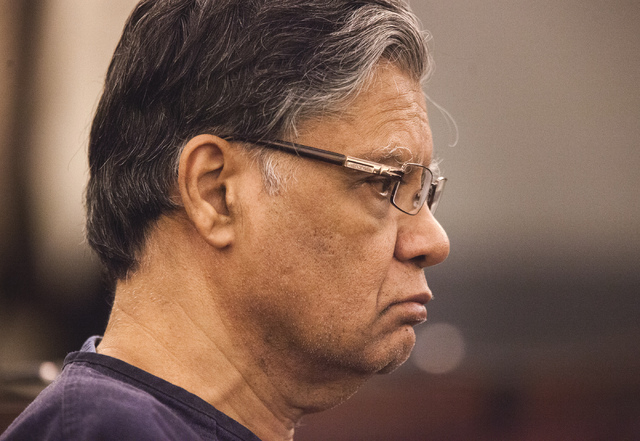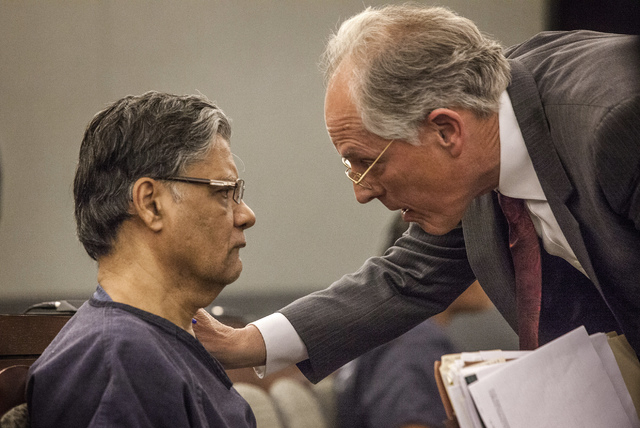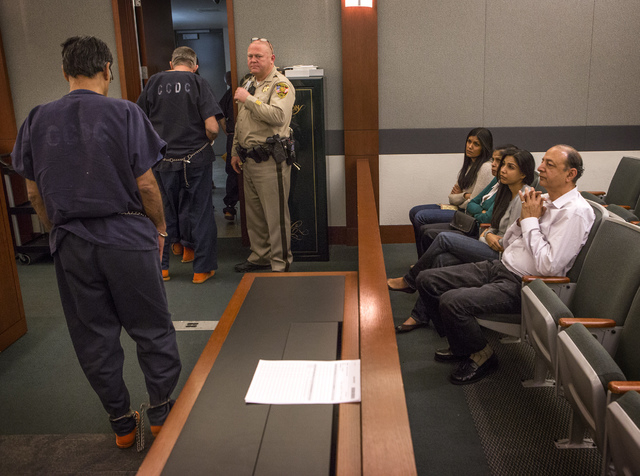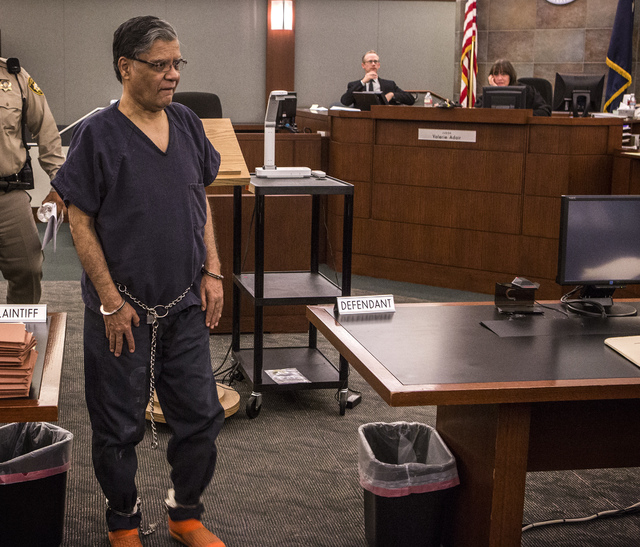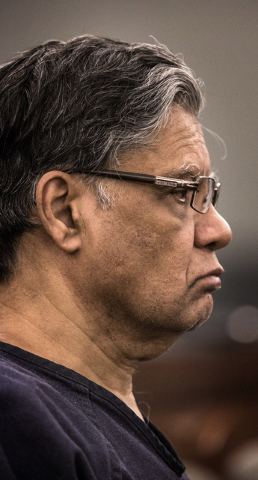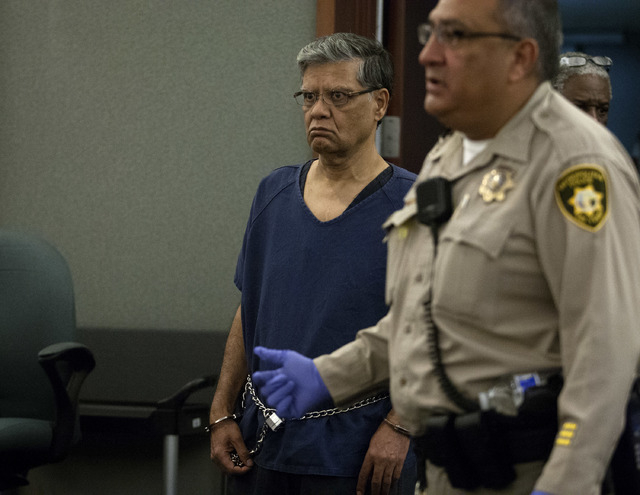Hepatitis C outbreak Dr. Dipak Desai sentenced to federal prison for fraud
After years of silence, Dr. Dipak Desai spoke publicly Thursday about the 2007 hepatitis C outbreak at his once-busy endoscopy center.
“I’m sorry sir, sorry,” Desai said in an emotional voice, as Senior U.S. District Judge Larry Hicks in Reno was about to sentence him to 71 months in prison for his role in a multimillion-dollar health care fraud scheme tied to the deadly outbreak.
Before that, in a Las Vegas courtroom linked by video conference, Assistant U.S. Attorney Crane Pomerantz spoke of his disdain for the man at the center of the outbreak.
Crane called Desai a “despicable human being” who has shown an “utter lack of remorse.”
He said Desai was driven in his medical practice by “wanton, crass greed.”
“This was a defendant who was living the American dream and it wasn’t enough,” Pomerantz said. “No amount of money has been enough for this defendant.”
Desai, a gastroenterologist, gave up his license in 2008 after health officials disclosed the outbreak.
Hicks credited Desai for roughly 30 months behind bars since he was criminally charged in state courts, but also ordered him to pay $2.2 million in restitution to the health insurance agencies defrauded in the scheme and to forfeit $2.2 million to the government.
The sentence ends the high-profile criminal proceedings in what federal prosecutors call the “greatest public health crisis ever” in Las Vegas.
The federal prison time is to run concurrently with Desai’s state sentence of life in prison with the possibility of parole after 18 years.
“Dr. Desai intentionally defrauded the federal health care system for his own personal enrichment,” Nevada U.S. Attorney Daniel Bogden said after the sentencing. “We are hopeful this closes a long and sordid chapter of harm caused to the people and businesses of Nevada.”
Desai, 65, in April pleaded guilty in federal court to one felony count each of conspiracy and health care fraud. He and his former clinic manager, Tonya Rushing, were indicted by a federal grand jury in 2011 on the conspiracy charge and 25 counts of health care fraud.
Rushing pleaded guilty to the conspiracy count and was sentenced in May to 366 days in federal prison.
Both were accused in an FBI-led investigation of inflating the length of medical procedures and over-billing Medicare, Medicaid and private insurance companies for anesthesia services between January 2005 and February 2008.
According to Desai’s plea agreement, Desai and Rushing put intense pressure on clinic employees to treat as many patients a day as possible. State prosecutors alleged in his 2013 trial that Desai ran his Endoscopy Center of Southern Nevada like an assembly line, often handling 60 patients or more each day.
Defense lawyer Richard Wright told Hicks Thursday that Desai was remorseful and never meant to harm his patients.
“He lives with what happened every day,” Wright said. “He’s a physician.”
Wright contended the government should have dropped the federal case after Desai’s state conviction, but Hicks said federal prosecutors had a “legitimate reason” to pursue their case.
Hicks said the massive nature of the fraud, involving as many as 60,000 patients, struck a “chord of disbelief” with him. Hicks had considered sentencing Desai to 10 years in prison, but chose the 71 months sought by the government.
Wright had pushed for the Reno hearing so Desai could remain in state custody in Carson City, where he is being treated for “neurological and cardiac” conditions.
Desai, who has suffered three strokes since 2007, is serving time under medical watch at the Northern Nevada Correctional Center in Carson City.
A jury convicted him in July 2013 of 27 criminal counts related to the hepatitis C outbreak, including second-degree murder in the death of infected patient Rodolfo Meana, 77.
Last year, a U.S. Bureau of Prisons psychological evaluation found Desai competent to stand trial but suffering from memory and cognitive impairment. A 2011 state mental evaluation concluded that Desai was exaggerating the effects of his strokes.
The state charges, which also included criminal neglect of patients and insurance fraud, involved the hepatitis C infections of Meana and six other patients at Desai’s now-closed endoscopy center. Health officials genetically linked the blood-borne virus in those patients to the clinic.
Prosecutors contended during the trial that unsafe injection practices involving the anesthetic propofol led to the outbreak.
Double-dipping syringes into propofol bottles used on multiple patients spread the virus from source patients infected with hepatitis C in 2007, prosecutors alleged.
Contact Jeff German at jgerman@reviewjournal.com or 702-380-8135. Find him on Twitter @JGermanRJ.



